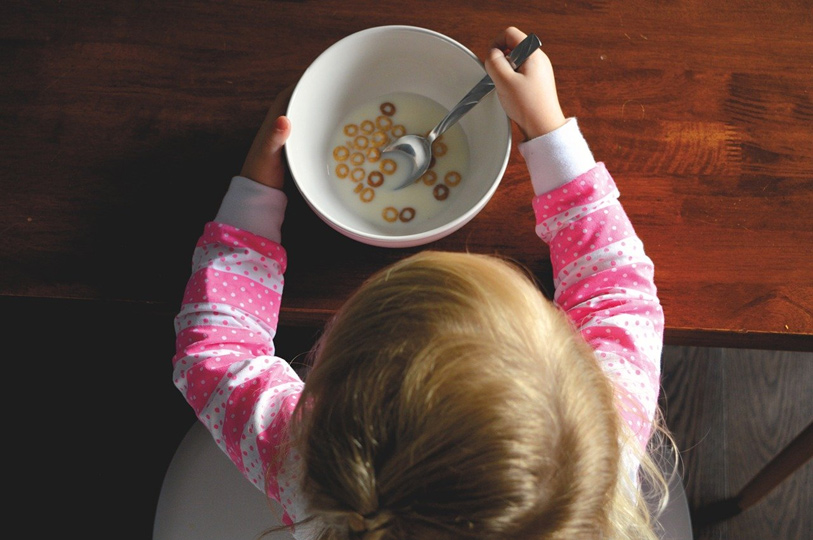What Healthy Foods You Should Eat During Pregnancy

March 12th, 2020 | Pregnancy
Research tells us that a baby’s first 1,000 days ranging from conception up to two years of age are vital for averting adulthood medical conditions. A healthy diet during pregnancy gives the baby all the nutrients it needs to grow properly without leaching them from the mother’s body.
How A Healthy Diet Benefits Baby
Your baby depends on your intake of food for the development of her organs, brain, health, and even mental health. Your intake of fatty acids, for example, benefits her brain health. Did you know that your intake of unhealthy foods like fast foods, for instance, determines the mental health of your child?
A healthy diet in the mother prevents high blood pressure, anemia, iron deficiency and more. These directly affect babies. When the mother isn’t well, neither is the baby. What healthy foods should mothers eat during pregnancy?
Fresh Vegetables
Eat every color you can find. Vegetables are the superfood pregnant women need the most. They provide fiber, and they’re low in carbs and calories. Green leafy vegetables contain iron, calcium, and Vitamin K which are vitally important to pregnant women. Choose romaine, spinach, kale, mustard-turnip-collard greens, and bok choy.
Studies show that baby’s palate is established before birth. Amniotic fluid is flavored with foods the mother eats. Baby drinks this amniotic fluid several times a day. Giving her the right nutrients during pregnancy ensures she’ll eat vegetables into adulthood.
Fresh Fruits
With these studies in mind, it makes sense to give baby all the fresh fruits mothers can. Have banana, blueberries, mango, pineapple, tangerines, blackberries, peaches, cherries, strawberries, apples, pears, and grapefruit with your oatmeal at breakfast, in salads, in cups for snacks, and smoothies any time of the day or night. Baby will get the fiber and antioxidants, Vitamins C, A, E, and K.
Beans, Lentils, And Grains
Baby’s development depends on nutrients like folate, Vitamins K and B, zinc, selenium, and chromium, to name just a few. Choose lima beans for iodine, garbanza, kidney, and pinto beans for folate, and other nutrient-packed beans like cannellini, anasazi, and black beans.
Whole grains provide complex carbs and B vitamins for baby’s development. Choose oats, quinoa, barley, and brown rice.
Organic Foods
Prepackaged, prepared foods have additives that contain no nutrients. They sit in the intestines until they’re eliminated. Organic foods, on the other hand, carry into the body the nutrients they picked up from the soil in addition to their innate nutrients. Baby gets the benefit of both for her development and life-long good.
Organic, free-range eggs contain choline which is vital to baby’s development. Especially eat the yolk in order to protect the baby from neural tube defects. Organic eggs are high in iodine which provides healthy brain development for babies. Add to these good things Vitamin E, healthy fats, and beta-carotene, and you have a healthy baby.
Organic Meats And Wild-Caught Fish
The amino acids in protein are essential to the body, because they facilitate the formation and actions of hormones and neurotransmitters. There are 28 amino acids, of which nine are not made by the body. Organic free-range eggs contain those nine amino acids. Three servings of organic meats like chicken, turkey, and grass-fed beef provide the protein needed by the body.
Omega-3 fatty acids are vital to the physical and neurological development of baby. Wild-caught salmon contains these fatty acids plus B vitamins, Vitamin D, choline, iodine, selenium, and protein.
Seeds And Nuts
Seeds and nuts are wonderful sources of healthy oils as well as Omega-3 fatty acids not found in fish. The nutrients include selenium, protein, calcium, iron, fiber, magnesium, phosphorous, and Vitamin E. The Omega-3 fatty acids will make your hair, skin, and nails glow during your pregnancy. Obviously the nutrients will benefit both you and baby. Choose flax seeds and chia seeds, almonds, brazil nuts, and walnuts.
Dairy
Calcium is needed for baby’s bones and teeth, and if she doesn’t get it from food, she’ll get it from your bones and teeth. While dairy products provide the 1,000 mg you’ll need, you can also get it from plant foods such as broccoli, mustard greens, collards, okra, and beans.
For dieting tips over the holidays, have a look at our articles on Eating for Two at Thanksgiving and Handling the Holidays While Pregnant.
Recent Posts
- Nutrition and Cancer Treatment: Fueling Your Body for Success
- Embracing the Shift: Transitioning Your Baby from Winter Clothes
- Welcoming Longer Days: A Spring Adventure for Little Ones
- Combating Nausea with Aromatherapy – Essential Oils for Chemotherapy Patients
- Finding Your Calm: Relaxation Techniques for New Parents
Categories
- All-Natural (4)
- Blog (47)
- Cancer (81)
- Diet (15)
- Holidays (27)
- Lifestyle (69)
- Motion Sickness (44)
- Nausea (107)
- New Mothers (44)
- Oncology Testimonials (3)
- Prebiotics (1)
- Preggie Products (11)
- Preggie Testimonial (24)
- Pregnancy (160)
- Queasy Products (7)
- Queasy Testimonial (17)